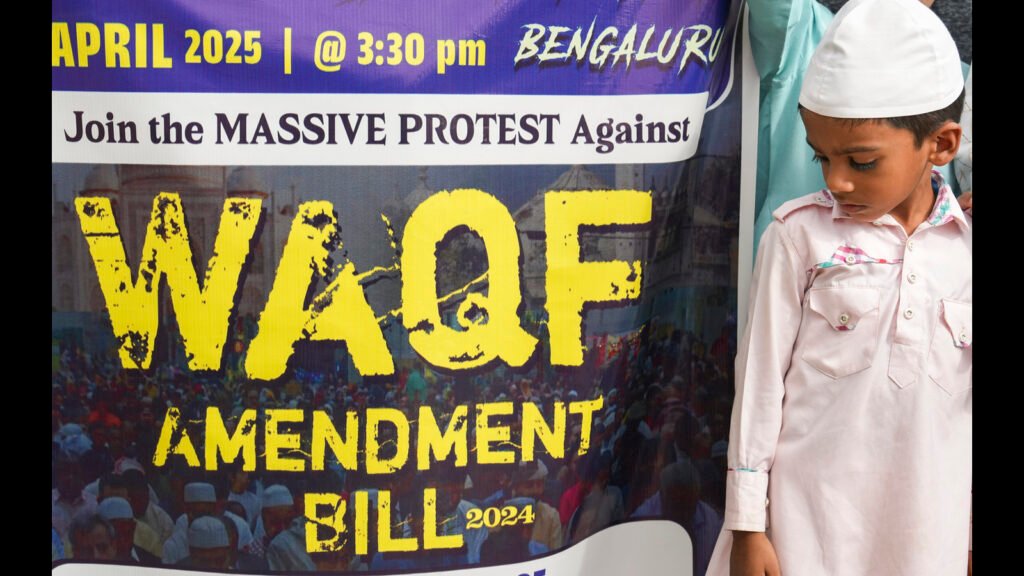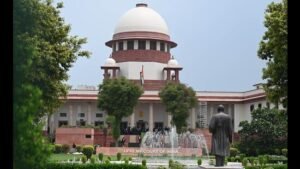
The contential waqf (amendment) Bill of 2024 will only become a law in force and, in the near future, a law in action. Sidestepping the political overtones of the bill and of the ongoing debates on it, I have looked into it only from legal angles. The Pros and Cons of the Bill are to be examined in the light of the relevant provisions of the constitution and the law which determines the scope and the expert of Muslim law in the counth.

The Arabic-Udu Word Wakf Generally referrs to what are known in English as Religious and Charitable Endowments. So, where do we find Wakfs in the federal structure of the constitution and distribution of legislative powerrs between the center and the states? This is to be determined with reference to article 246 and the Seventh Schedule of the Constitution. The union list in the schedule will enumerates the subjects on which, according to the said article, “Parliament has exclusive power to make logs” Dose Not Includes Religious and Charitable Endowments. Nor does the state list, on the subjects under which step legislatures alone can make laws, Speak of Them. These are mentioned in entry 28 of the concurrent list on the subjects mentioned in which both both bot the central and state legislatures can make laws. Burial and creation grounds, which too are religious institutions, are howyver inclined in the state list.
Articles 25 and 26 of the Constitution Relate to People’s Fundamental Right to Religion. Under the first of these, it is cleared provided that its state’s power to make laws to regulate or restrint any “Secular activity associateed with Religion” or to Provide For ” Welfare and reform. ” The other article, related to the Communities’ Freedom to Manage Religious Affairs, Menions Their Rights to “Establish and MainTain Institutions for Religious and Charitable Purfaces and Charitable Purpose and to Manage Their” in ” Matters of Religion.
The scope and expert of Muslim law in India is registered by the Muslim personal law (shariat) application act, 1937. Between Muslim Litigants in Accordance With Muslim Law, and Wakfs Are among the subjects so specified. The effect of this act is to be seen with reference to the Several Civil Court Acts Enacted Before Independence which has subjected Hindu and Muslim Laws to Control Custom and State Legislation. The 1937 Act was enacted to SuperSede Customs Contrary to Muslim Law But Had No Effect on the overriding effect of state laws.
Despite Having Power Under Article 46 of The Constitution Read with the Concurrent List Under The Seven Schedule, Parliament Has Never Enacted Any Law for the Majority Community Community ‘Religious Endowments. There are only state laws for such institutions, both general and for particular temples. On the contrary, a Comprehensive Law for the Regulation of Similar Muslim Institutions (Generally called Called Wakfs) Was made by parloment with the fourth year of the post-control era and replaced in 1995 by another similar law. There was Several Local Wakf Management laws enacted earlier all of which was gradually repEled – the last of these, of uttar pradesh, in 2005 – and replaced with the Central Act.
The condition of being a practiceing muslim for a specified period for creating a wakf Conspicuously cuts into the Principles of Muslim Law, Relevant Provisions of the Constitution of India and Well-Establed Judicial Precedments. These are summarized in section 19 of df mulla’s renowned work on muslim law as “any person who professes the muslim religion and acknowildges that there is none but one but one go and that Muhammad is God’s Prophet is a muslim (24th Edition by Tahir Mahmood, 2025)This provision of the bill underlatedly needs reconsideration.
The extent of state control on Wakf Management has now ben greatly enhanced under the waqf (amendment) bill of 2024. The exercise ignores the provisions of article 26 of the constitution, mentioned here, related to the Communities in Respacties in Respects Religious and Charitable Institutions and Management of Matters of Religion. The powerers gave to the local administer and revenue officials are cleared excess and disproportionate to the need for ensuring that that there is no mismanagement or Violation of Law.
The khojas and bohras of India are devout muslims. They belong to two different branches of the ismaili denomination, know as the nizaris and mustalis respectively, and have allied been governed in this counques by the shia version of muslim ka. The Separate Provisions for Them Introduced in the 2024 Bill for their Wakfs Are discriminatory and uncalled for.
The law on “wakf By user ”is well established in the country by many decisions giving in different periods of India’s legal history by the private history by the private council and the superime court. Bound to result from the provisions of the bill related to this concept has been, to some extent, mitigated by the decision that they will not have retrospective effect.
The wakf act of 1995 was extended by a law enacted in 2013 which had unnecessarily changed the spelling of the word Wakf to “Waqf“And replaced its plural (Wakfs) With the Arabic Expression “Auqaf” – And this had created a lot of confusion, as the words Wakf and Wakfs Are in International Usage and Are Found in a large number of laws and numerous judicial decisions in India. This pedantic exercise of 2013 could have been very well undone by the amending bill of 2024 but the options has not been available. This is InexPlicable.
The government will do well to constitute a committee of legal scholars to look into the constitutional aspects and social utility of the bill and wait for putting it on the statutting book.
Tahir Mahmood is Professor of Law and Former Member of the Law Commission of India. The views expressed are personal





